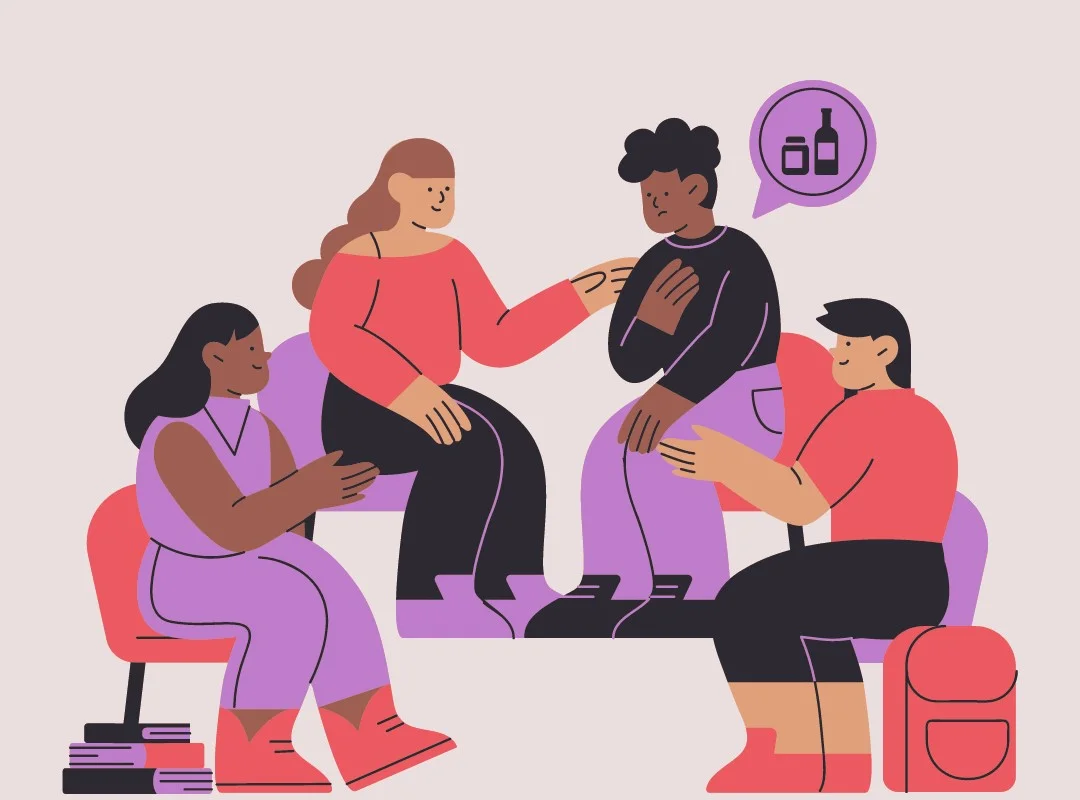Humans depend on their families for individual growth, emotional contact, and self-esteem maintenance. Family members create a group that is typically bonded together by intense and long-term experiences, fosters mutual support, and necessitates the fulfilment of everyone’s needs and expectations.
Family therapy is a healing technique that is transformative and places a strong emphasis on the role that familial relationships play in an individual’s psychological health. It is predicated on the idea that families are strong systems in which each member’s actions both influence and are influenced by others. Family therapy has many advantages that support the general well-being and harmony of the family by treating concerns within this dynamic framework.
Family therapy frequently has similar objectives. Typically, these consist of:
- Examining the interactions between family members
- Identify and fix any unhealthy communication patterns within the family system
- Utilizing the strengths and assets of the family
- Giving the family better problem-solving abilities
What are the types of family therapy?
Family therapy is used in many different ways by mental health professionals, many of whom are specialists in certain disciplines. The sort of therapy selected will rely on the unique requirements and circumstances of your family. To effectively suit your requirements, therapists may include components from various therapy approaches.
Strategic family therapy
The goal of strategic family therapy, which is a brief type of family therapy, is to improve the structural and behavioral aspects of the family setting. It is predicated on the idea that a child’s family is the most significant factor in their life and development. This treatment form is one that therapists can use with families whose children have behavioral problems.
Narrative family therapy
Family members are encouraged to share their own stories in narrative therapy in order to better understand how their experiences have shaped who they are and how they interact with others. Working with this story helps the individual understand issues more clearly rather than only through the prism of their own limited perspective.
Structural family therapy
Family therapy that examines the internal dynamics, limits, and hierarchies within a family unit is known as structural family therapy. It emphasizes that having direct conversations with your family members is the best approach to effect positive change. The core tenet of structural family therapy is that families will find healthy substitutes for their unhealthy ways of relating to each other when supported by a therapist.
Psychoeducation
The goal of this kind of care is to give family members a better understanding of mental health issues. Family members can work together as a strong support system by being more knowledgeable about drugs, therapies, and self-help techniques.
Marriage counselling/couples therapy
Licensed Marriage and Family Therapists (LMFTs) have received specialized training in assisting couples in identifying issues and developing solutions. Concerns could be about economics, parenting, communication, comprehending your partner’s or your own mental health, and much more.
Benefits of Family Therapy
Family members can learn how to effectively communicate their needs and thoughts and resolve problems in a way that is less likely to sour relations because this type of treatment focuses on communication.
This kind of treatment also emphasizes how family members can help each other through a family member’s struggles. For instance, family therapy can assist in modifying certain circumstances that may occasionally exacerbate a mental health disorder in one family member.
There are situations when family members of those suffering from mental illness are unaware of how to support them. They might thus take part in activities that exacerbate or even sustain the symptoms of the condition. Family therapy can assist members in understanding their own capabilities.
Resolution of Conflicts
Conflicts are unavoidable in any relationship, but unresolved ones can strain familial relationships and cause emotional pain. Family therapy enables families to address underlying issues and conflicts in a positive way. Therapists assist families in discovering the underlying reasons of conflict, investigating alternate options, and establishing successful conflict resolution procedures. Resolving disagreements not only lessens tension but also promotes a more harmonic and supportive family atmosphere.
Encouragement of Personal Development
Family therapy recognizes the value of personal development even as it concentrates on the family as a whole. Together with each family member, therapists evaluate objectives, strengths, and growth opportunities. Therapy promotes personal development within the framework of the family, which enhances the resilience and general well-being of the family.
Preventing Future Issues
Family therapy is proactive in addition to reactive. Therapy can help stop future problems from developing or getting worse by addressing underlying issues and enhancing family dynamics. Families get useful knowledge and techniques that they may use to foster wholesome relationships and deal with problems as they come up.
To promote mental health and emotional well-being within the framework of familial interactions, family therapy is an essential and successful strategy. Family-therapy reduces individual pain while strengthening family ties and boosting resilience through addressing dynamics, enhancing communication, resolving disputes, and cultivating empathy. It gives families the tools they need to overcome obstacles, encourage one another through life’s changes, and build stronger bonds. As the connection between personal and family health becomes more apparent, family therapy becomes an increasingly important source of hope and healing for families who want to prosper together.









